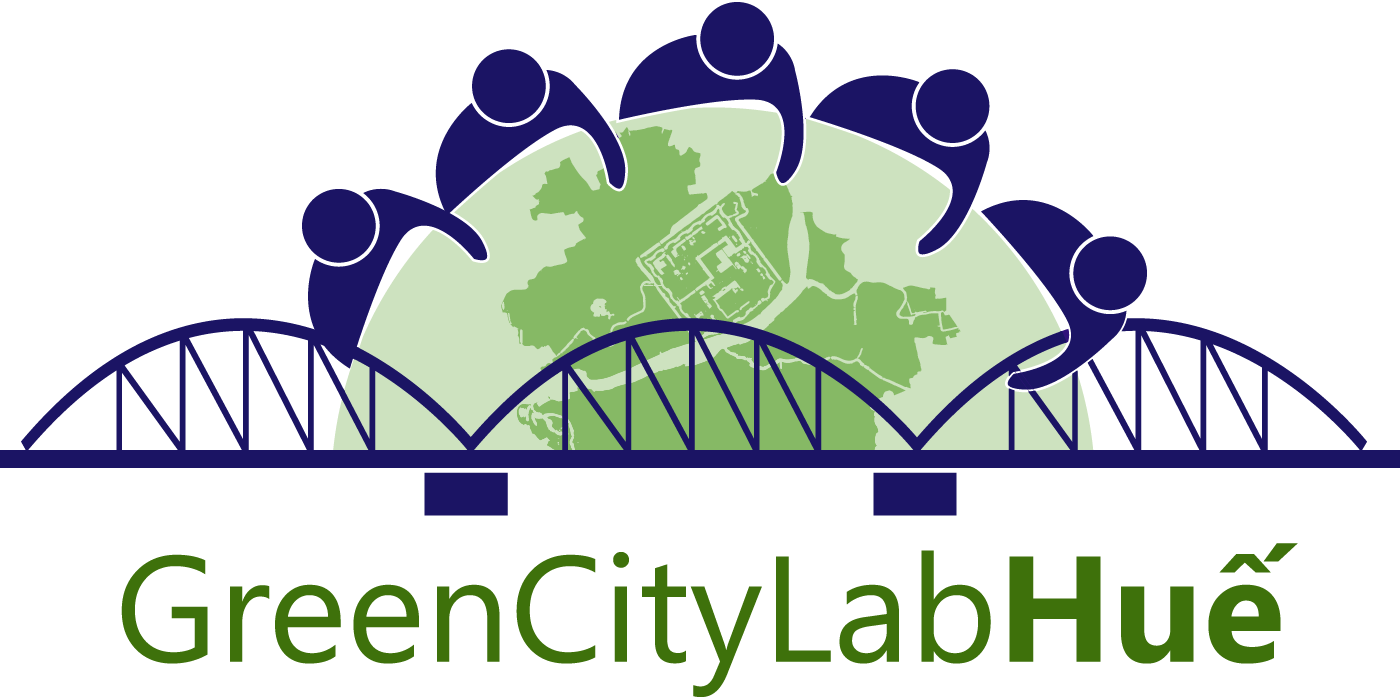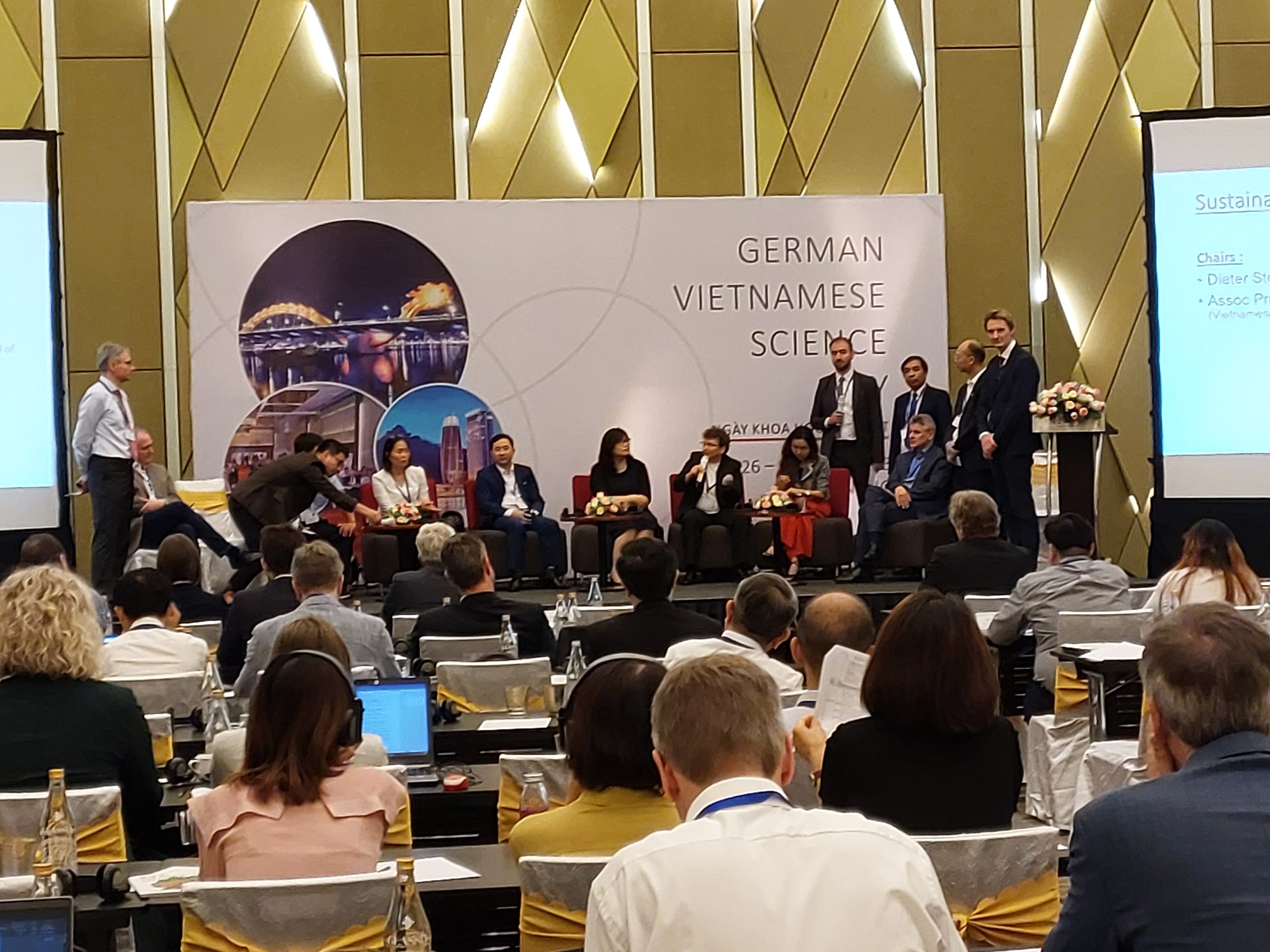From April 26 to 28, the “German-Vietnamese Science Day” organized by the German Federal Ministry of Education and Research (BMBF) and the Vietnamese Ministry of Science and Technology (MOST) took place in the central Vietnamese coastal city of Da Nang. It was the first “German-Vietnamese Science Day” in 4 years, as the event, which is normally held every 2 years, had to take a break due to Covid-19. It was also the first time that the event was held outside the major metropolitan cities of Hanoi or Ho Chi Minh City. The choice of venue in Da Nang, the country’s third largest city and the largest city in central Vietnam, also highlighted the growing importance and interest in this region. The GreenCityLabHuế was represented at this year’s Science Day by Independent Institute for Environmental Issues (UfU) staff member Fabian Stolpe, Mientrung Institute for Scientific Research (MISR) staff member Dac Hoang Long Nguyen, and Hue University of Science (HUSC) architecture faculty member Nguyen Phong Canh. Also present was program coordinator Dr. Heike Bauer, who heads the BMBF-implemented research program “Sustainable Development of Urban Regions in South East Asia” (SURE), under which the GreenCityLabHuế project is implemented.
Hue is the neighboring city of Da Nang, and the two metropolitan regions are separated by the famous Cloud Pass, which also forms the natural weather divide between the subtropical part of the country in the north and tropical part in the south. Both cities and the entire region are severely hit by the effects of climate change. Due to its exposed geographic location along a flat coastal strip, bordered by the sea to the east and separated from the rest of the Indochinese peninsula by high mountain ranges to the west, central Vietnam regularly suffers from extreme heat waves, storms, heavy rainfall events and flooding.
The GreenCityLabHuế project was presented by UfU staff member Fabian Stolpe in a workshop on sustainable urban development. The participating Vietnamese and German scientists and politicians subsequently discussed how the valuable research results and solution concepts from this and other projects implemented in Vietnam can actually be implemented by local authorities and maintained in the long term. Most of the discussants agreed that the German-Vietnamese research partnership should be further expanded and that the implementation of scientific concepts should be promoted more strongly in the future.
Two days before the event, a delegation of the BMBF and the MOST already visited our GreenCityLab in Hue. The participants were able to get an idea of the situation on site and had a look at the locations for our future showcases of nature-based solutions for climate adaptation in the city. On these four sites, exemplary concepts for nature-based adaptation to climate change are currently being implemented as part of our project, which are intended to show local stakeholders and citizens the positive impacts that green-blue infrastructure can have on ecosystems, local climate, air quality and human well-being. This is intended to inspire and encourage local decision-makers and other stakeholders to adopt similar measures on a large scale in their urban development activities.



